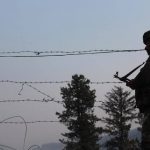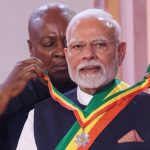In a landmark judgement of the Division Bench comprising of Justice Atul Sreedharan and Justice Mohammad Yousaf Wani, High Court of Jammu & Kashmir and Ladakh has said that the status of the Kashmiri Pandit “Migrant” women will undergo no change even if they marry the non –migrants. The court has upheld the Central Administrative Tribunal (CAT) order in favour of the two KP women candidates selected under the Prime Minister’s Employment Package. Two Kashmiri Pandit Migrant women Seema Koul and Vishalini Koul had approached the High Court in 2018 after their selection in the list of legal assistants in the Department of Disaster Management, Relief, Rehabilitation and Reconstruction earmarked for the internally displaced community. But their selection was cancelled as they married the non-migrants. The Division Bench dismissed the appeal of the J & K UT and directed the government to issue the appointment orders of Seema Koul and Vishalini Koul. In order to deliver justice to the respondents and directing the government to issue appointment orders, the Division Bench has observed that “This court is of the opinion that order passed by learned Tribunal is just and proper. As per the definition of ‘migrant’ in SRO 412, it defines who a migrant is but, thereafter, has no provision for reversal of the status once granted. Thus, as per the said definition, a migrant was someone who was forced out of the Kashmir valley after 1989. This factual aspect is not disputed by appellants herein. Thus, there is no doubt with regard to the migrant status that was granted to the respondents herein”. The Court has taken the realistic and practical approach to deliver justice to the respondents. It has rightly been observed that the two women were forced to leave Kashmir valley due the situation that prevailed in 1990’s and that situation was not their creation .And that was not of their making. In order to maintain their “ Migrant” status they should not be expected to remain unmarried. So that they can qualify for the jobs in Kashmir. Substantiating their judgement the Division bench of the Honourable Court has observed that “A question of public importance arises before this court is whether a woman who has been given a migrant status on account of the suffering endured by her and her family and forced to leave their home and hearth in Kashmir valley because of the disturbance, could be discriminated and would stand to lose the migrant status only because she got married to a non-migrant? This would be going against the nature of human beings”. This is indeed worth pondering. The Division bench has done justice to the women that will go a long way in upholding rights of Kashmiri Pandit Migrant women serving under employment package in Kashmir and also safeguarding the rights of other women. Though after the neutralisation of the Article 370 and 35 A women rights in Jammu and Kashmir have been upheld to great extent. That also includes the rights of the women in Jammu and Kashmir who have married the males outside Jammu and Kashmir. The Division Bench has also struck the right note while observing that “It is also reasonable to presume that because of the mass exodus, not every migrant woman would be in a position to find a match who himself was a migrant. In such a situation, to hold that the woman would lose her status as a migrant only because she, out of the natural urge of forming a family, had to marry a non-migrant on account of existing circumstances, would be grossly discriminatory and goes against the very concept of justice”. The Division Bench has categorically said that in the matters related to employment under the State or UT, this type of discrimination cannot be countenanced. Thus the Division Bench has delivered justice and set the right precedent for the times to come. This issue had emerged from an appeal filed by the Jammu and Kashmir Government challenging the Central Administrative Tribunal (CAT) order directing the UT Government to appoint the two ladies as legal assistants in the Department of Disaster Management, Relief, Rehabilitation, and Reconstruction. This judgement will be remembered for times to come and cited to solve more cases while upholding women rights.
Safeguarding the Rights of Women

Sign Up For Daily Newsletter
Be keep up! Get the latest breaking news delivered straight to your inbox.
By signing up, you agree to our Terms of Use and acknowledge the data practices in our Privacy Policy. You may unsubscribe at any time.
Leave a Comment
Leave a Comment
Stay Connected
Latest News
Recent Posts
- Travel in designated convoys, Kashmir police issues advisory for Amarnath Yatra pilgrims
- Excellent arrangements, say devotees as they begin Amarnath Yatra with chants of “Har Har Mahadev”
- 3 indians abducted from factory amid al-Qaeda linked terrorist attack; India urges Mali to secure their safe, swift release
- PM Modi calls Ghana’s highest state honour a ‘matter of immense pride’, accepts it on behalf of 1.4 billion Indians
- “Not just a religious Yatra, it’s a Yatra of the people”: Divisional Commissioner Kashmir Vijay Kumar Bidhuri







